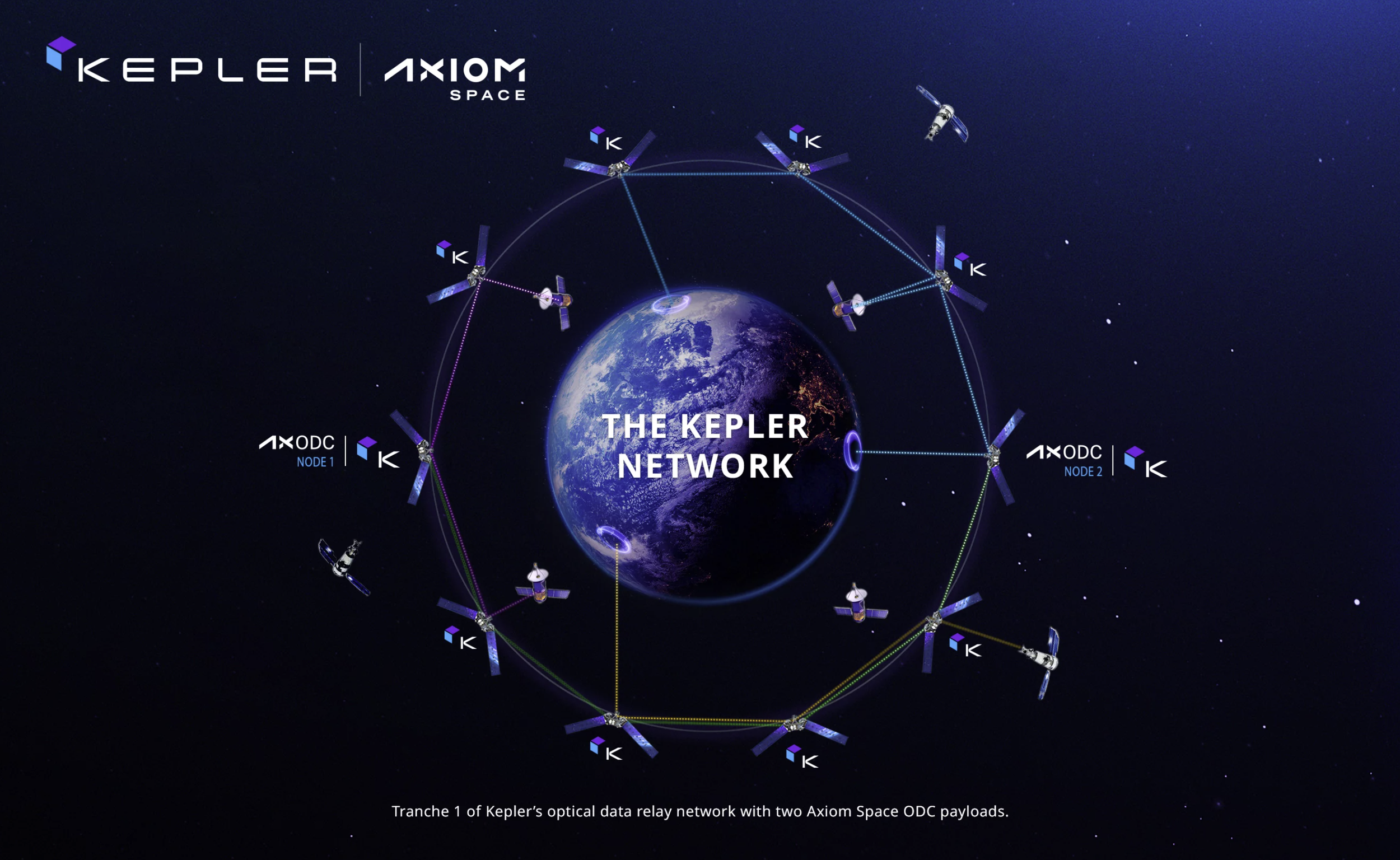Kepler Announces On-Orbit Compute Capacity on Optical Data Relay Network
Kepler Communications Inc. today announced that it will sell high-capacity on-orbit compute capabilities enabled by its optical data relay constellation, The Kepler Network.
Under Kepler’s on-orbit compute offering, customers may lease or purchase computing hardware onboard Kepler’s optical data relay satellites, enabling advanced on-orbit computing capabilities to support advanced processing, data storage, cloud compute, artificial intelligence, multi-sensor data fusion, and other use cases in space. The Kepler Network, with its constellation of optically inter-connected satellites, provides an ideal platform for on-orbit data center capabilities.
“Data requirements in space are growing exponentially and we are excited to offer our customers multiple solutions to send, store, and enhance their on-orbit data,” said Mina Mitry, chief executive officer and co-founder of Kepler Communications. “Launching an on-orbit compute capacity enables our customers to extend terrestrial computing concepts into space to expand the possibilities of their mission.”
Each Kepler satellite hosts edge computing payloads with advanced processing units and storage available for customers to utilize. The payloads were designed to complement The Kepler Network, providing customers with improved performance, real-time analysis, reduced latency, and enhanced security. Entities purchasing or leasing edge compute payloads on Kepler’s satellites will have access to the company’s data relay services and can schedule optical inter-satellite links to drive incoming and outgoing data.
Axiom Space, a company building a commercial space station and developing orbital data center (ODC) infrastructure in low Earth orbit (LEO), has entered into a strategic collaboration with Kepler to purchase two initial on-orbit computing payloads for Axiom Space’s ODC business. Axiom Space’s first two ODC nodes will fly on Kepler’s optical data relay network, establishing the foundation for space-based cloud computing.
Mitry added, “This collaboration with Axiom Space will accelerate the reality of on-orbit computing, enabling real-time decision making, enhanced mission autonomy, advanced imaging and AI/ML insights, and other on-orbit processing applications tailored for space missions.”
The company will have options to purchase additional payloads on Kepler’s constellation to increase capacity for their ODC business. The two companies will jointly collaborate on extending network and ODC services to national security, civil, commercial, and international customers. Axiom Space and Kepler have collaborated on integrating Kepler’s optical inter-satellite links with Axiom Space’s ODCs since 2023 and are dedicated to bringing high-speed data processing to SDA-compatible space assets in LEO.
”Kepler is at the forefront of building a commercial optical data relay network,” said Jason Aspiotis, global director of in-space data and security at Axiom Space. “Deploying our initial ODC nodes on The Kepler Network will give Axiom Space’s ODC customers the ability to move their data to and from our nodes, providing an initial ODC offering for space-to-space and space-to-ground cloud computing and storage use cases.”
Kepler’s first tranche of optical data relay satellites is scheduled to launch in Q4 2025 and will include nine satellites and a spare in sun-synchronous orbit. A second tranche, which the company has announced will also support the European Space Agency’s High Throughput Optical Network (HydRON) program, will follow approximately two years later and expand the constellation to offer full coverage in low Earth orbit with leading-edge data rates.
